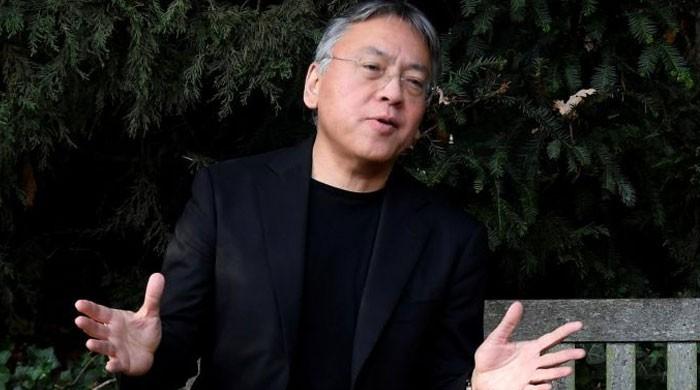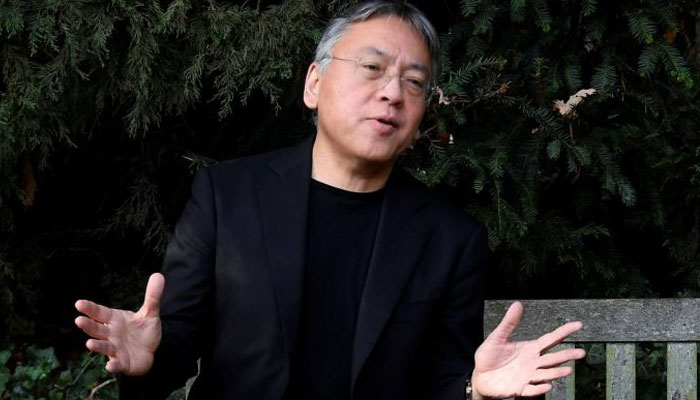

LONDON: Kazuo Ishiguro, the 62-year-old British novelist of Japanese origin who won the Nobel Prize for Literature on Thursday, once wanted to be a rock star, then became a social worker and only later in life turned to writing.
Born in Japan and raised in England speaking Japanese at home, his writing has consistently explored this duality, something he credits with aiding his appeal.
"I've always looked at the world partly through my parents' eyes... (and) had a part of me that was Japanese," he said on Thursday in the garden of the north London home he shares with his wife.
"That was quite good for me as a writer at the time when I was writing, because literature started to become very international."
A prodigious writer since the early 1980s, he has penned eight books -- as well as scripts for film and television -- which have been translated into dozens of foreign languages and won numerous awards.
But the author has remained more reclusive than some of his contemporary peers.
Ishiguro is still best known for "The Remains of the Day", which landed the Man Booker Prize for Fiction in 1989 and was turned into an Oscar-nominated film starring Anthony Hopkins and Emma Thompson.
He later admitted to writing the book in a prolific four-week period.
He has also found fame more recently with "Never Let Me Go", his 2005 novel, and "When We Were Orphans", published in 2000.
In awarding their prize on Thursday, the Nobel committee noted Ishiguro was most associated with themes of memory, time and self-delusion.
Despite his enviable success, Ishiguro has appeared modest in interviews.
"I'm not a very inspired person," he told the Financial Times in 1995. "I don't have a lot of ideas."
Asked what made novelists choose their often precarious occupation, he replied: "I won't say writers are crazy people because I don't care for stereotypes. But something is sufficiently out of line in their structure as people."
Drifted into writing
Ishiguro was born in Nagasaki, Japan, in 1954, but moved to England aged five, when his father began research at the National Institute of Oceanography.
Intended as only a temporary move, the family eventually settled permanently in Guildford, a town some 30 miles (50 kilometres) southwest of London.
After finishing school in the area, he enrolled at the University of Kent in Canterbury, where he read English and Philosophy.
The author, who plays the piano and guitar, has said his first ambition was to become a rock star, but he drifted into writing instead.
"This sounds very blase.... but (writing) wasn't necessarily what I wanted to do," he told the FT in the same 1995 interview.
Grouse-beater at Balmoral
Indeed, Ishiguro worked in several professions before settling on writing, including as a grouse-beater for the Queen Mother at Balmoral and as a social worker in Glasgow and London.
His writing career finally launched during a creative break from social work.
Ishiguro had enrolled in an MA course in creative writing at the University of East Anglia where his potential was spotted by the publisher Faber, which signed him.
He began writing full-time in 1982, enjoying sustained critical and commercial success ever since.
The Nobel winner revealed on Thursday he is in discussions to continue harnessing his Japanese roots in a perhaps unexpected way: by writing a graphic novel.
"This is a new thing for me and reconnects me to my Japanese childhood of reading manga," he said.
No comments:
Post a Comment